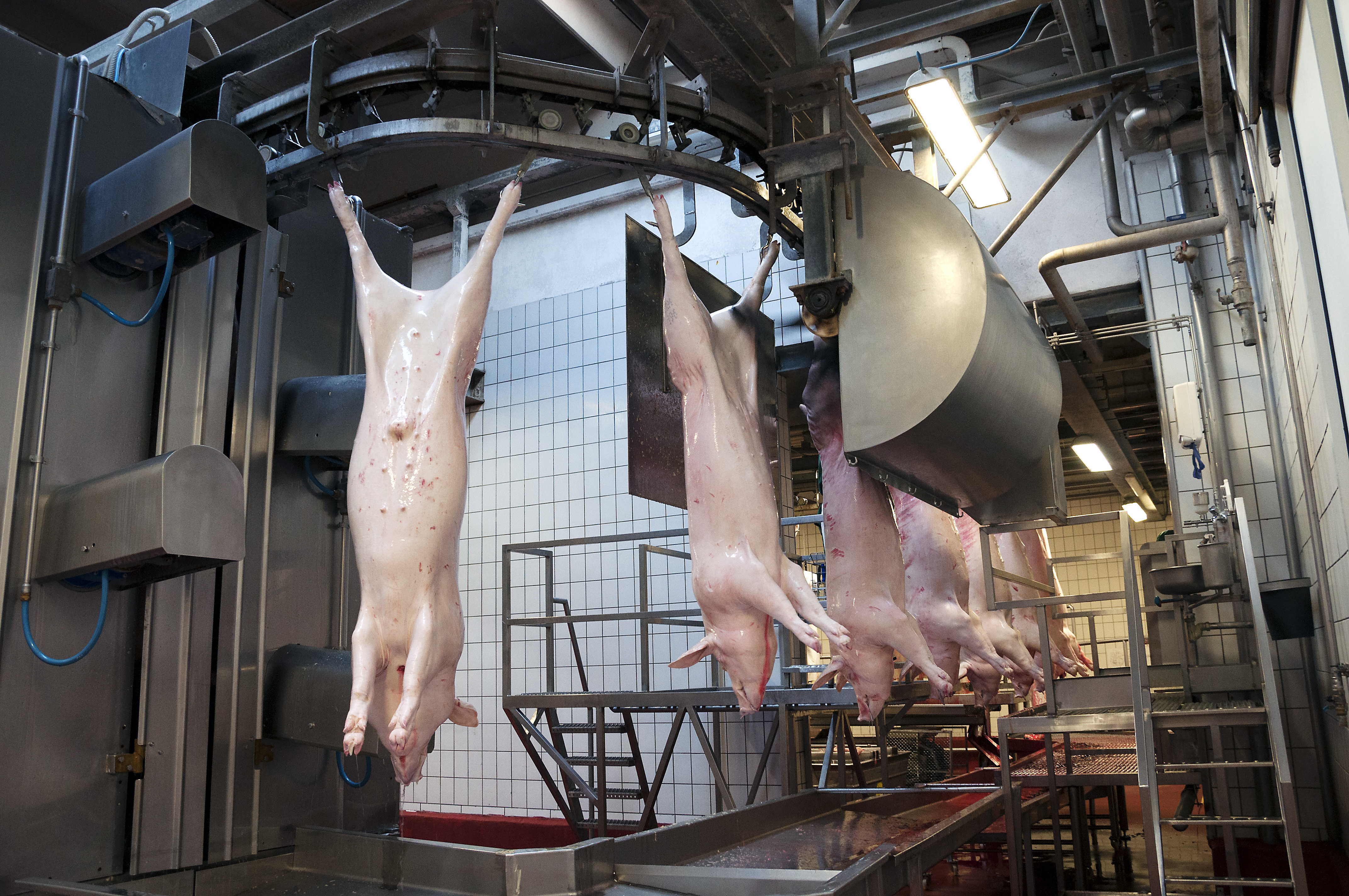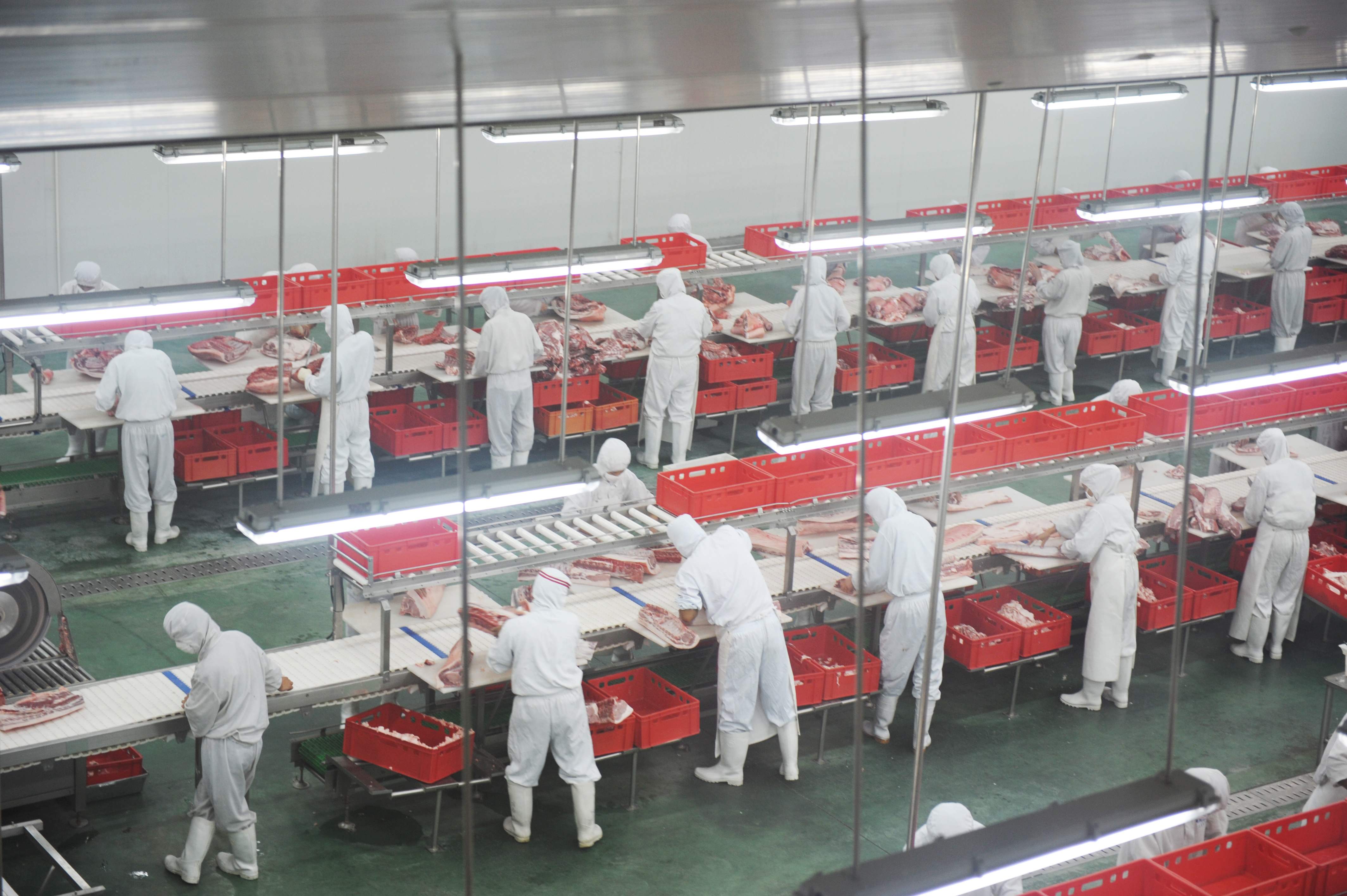



COVID-19 crisis spurs automation at abattoirs
Meat processors are embracing automation as a way to keep production steady after outbreaks of coronavirus at meat plants across the world sickened workers.According to an in-depth analysis in Reuters, meat processing companies are installing robotic arms and other automation devices to maintain production levels and allow workers to socially distance while on the factory floor – marking a notable change from the pre-pandemic business model that saw employees working elbow-to-elbow on a daily basis.
Reuters notes that the United States, Canada and Brazil, all major meat producers and exporters, have adopted technology at a slower pace than Northern Europe or Japan and lagged other industrial factories in automating their operations.


Accelerating the move to automation would increase food security and improve plant safety. But such plans come with costs that some find unaffordable during tough economic times, and workers fear they are being replaced, not protected.
Tyson Foods, Smithfield Foods and JBS SA , several of the world's largest packers, all have automation plans under way, their representatives said.
Meat plants account for just $1 billion in global annual sales of automation supplies and services, distributor Cantrell Gainco said, a sliver of the estimated $215 billion business of industrial automation, according to advisory firm ROBO Global. But North American packer interest is climbing.
Georgia-based Cantrell Gainco, which sells Japanese manufacturer Mayekawa's chicken deboning equipment, has fielded twice the usual number of inquiries since the pandemic spread to North America, said Russ Stroner, vice president of global sales.
Mayekawa said in a statement that global sales of its chicken deboning robot parts are set to rise from $32 million in 2019 to $45 million this year and $60 million in 2021, including North American sales this summer to Tyson, Sanderson Farms and Peco Foods.
Brazil’s approach
In Brazil, the country's fourth-largest pork processor, Frimesa, intensified efforts to automate as the pandemic spread.
Plans called for spending 20 million reais ($3.53 million) annually on automation, but that programme may now get a 5 percent annual bump, not including one-off pricey equipment purchases like robots, said Claudecir dos Santos, Frimesa's research and innovation manager. The goal is to automate areas where employees cluster together, he said.
Frimesa's Assis Chateaubriand plant under construction in the state of Parana will include five robots, costing some €500,000 ($586,000) each. They will perform tasks including cutting open the pig's chest, eviscerating it and slicing the animal in half.


Trends emerging in North America
Olymel LP, one of Canada's biggest pork and poultry processors, had an automation plan before the pandemic forced it to temporarily close a Quebec plant for more than two weeks.
It decided then to accelerate the plan, and intends to use robots to sort meat cuts, pick and pack shipments and stack boxes, said Vice President of Engineering and Project Management Marco Dufresne.
Tyson, the highest-selling US meat company, is making a bigger automation push because of the pandemic, said director of engineering Doug Foreman.
Greater automation raises suspicions, however, among labour groups.
"It's taking away people's jobs," said BJ Motley, president of the United Food and Commercial Workers union (UFCW) branch that represents Smithfield workers in Sioux Falls, South Dakota, where more than 1,000 workers contracted the coronavirus.
Smithfield automated the work of splitting hogs at the plant a few years ago, eliminating eight positions, he said.
JBS USA uses the threat of replacing workers with automation as a negotiating tactic, said Kim Cordova, president of the UFCW local union that represents JBS beef plant employees in Greeley, Colorado.
"We're threatened with automation all of the time, like, 'If you speak up, we'll just use automation,'" Cordova said.
A JBS spokesman said the allegation was "completely untrue."









